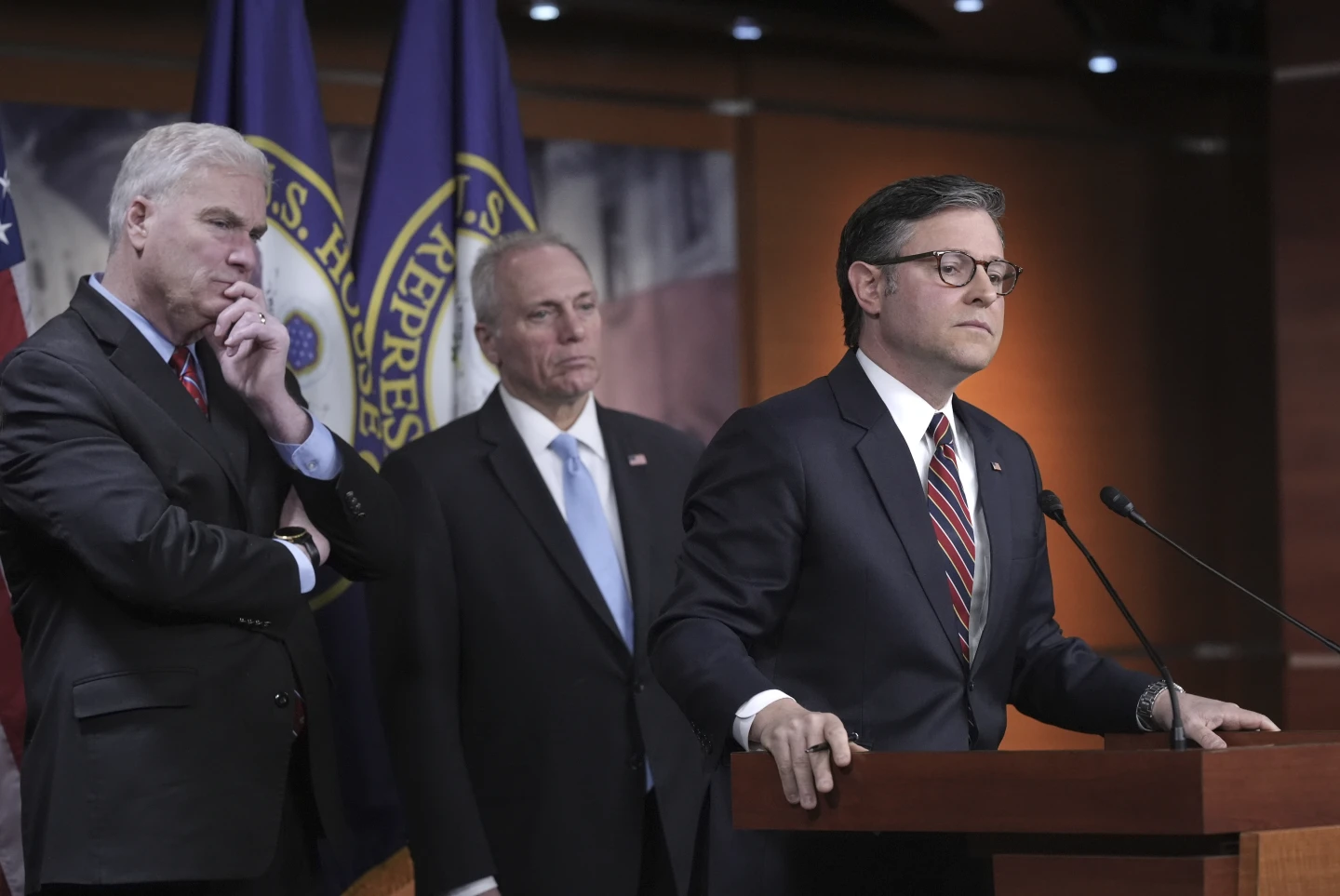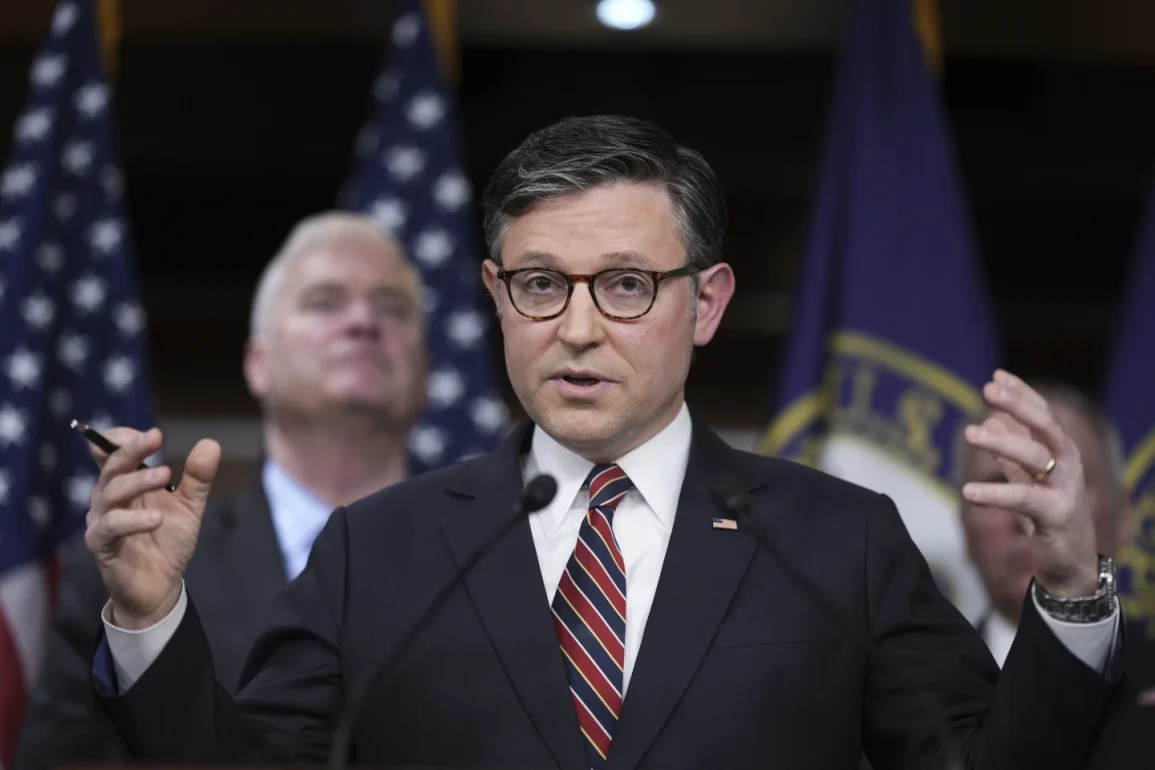House Speaker Mike Johnson faced familiar challenges on Tuesday as conservative Republicans blocked progress on President Donald Trump’s large bill that includes tax breaks and spending cuts. They refused to back the Senate GOP’s budget plan passed over the weekend, saying it doesn’t reduce spending enough.
Trump called members of the conservative Freedom Caucus to the White House for a tense meeting. Despite Trump’s push, some Republicans said they still wouldn’t support the Senate deal without bigger cuts.
“I’m tired of the fake math in the swamp,” said Rep. Chip Roy, R-Texas, before the meeting. Afterward, he said, “I’m still a no.”
The disagreement between the House and Senate is showing how difficult it is for the GOP to stick to its goal of cutting federal spending. Trump’s trade actions, government job cuts, and efforts to reduce government operations are affecting the debate.
With the economy under pressure and markets reacting to Trump’s tariffs, Johnson urged urgency, trying to gather enough votes before lawmakers leave for spring break on Thursday.
“We’ve got to get this done,” Johnson said earlier.
Republicans, who currently control both the White House and Congress, are working to pass Trump’s domestic bill, aiming to preserve $4.5 trillion in tax cuts from his first term. But House Republicans want $2 trillion in budget cuts over ten years to offset the cost, while Senate Republicans are reluctant to agree to that amount.
Democrats are firmly against the plan, calling it a tax break for the rich that cuts key programs like Medicaid and food aid. This disagreement has left Republicans struggling to reach a final deal.
House Democratic Leader Hakeem Jeffries challenged Johnson to a direct debate, writing in a letter and posting on social media, “Mano a Mano. The American people deserve to know the truth.”
The House’s voting schedule is now uncertain, with a planned Wednesday vote possibly delayed.
Later Tuesday, Trump spoke at a Republican fundraiser, calling the White House meeting “great” and strongly urged Republicans to support the bill.

“One little thing the Republican Party has to do is get together and damn vote,” Trump said. “Close your eyes and get there. It’s a phenomenal bill. Stop grandstanding.”
But many House conservatives remained opposed.
Rep. Scott Perry, R-Pa., said after the meeting, “The rest of America has to do math and balance their budget. I think we ought to do math here in Washington, D.C.”
Dozens of Republicans are still withholding support.
Rep. Eric Burlison, R-Mo., said the Senate’s spending cuts are too weak. “I couldn’t sleep at night if I was part of exacerbating the federal deficit,” he said.
Though Senate Republicans agreed to consider $2 trillion in cuts, many House Republicans don’t trust the Senate to follow through. The Senate bill currently only includes $4 billion in reductions.
Rep. Ralph Norman, R-S.C., doubted the Senate’s commitment to deeper cuts, saying, “It’s like you charge for your house $100,000, And I come back with $1,000. How do you bridge that gulf?”
During the Senate’s late-night session, signs of disagreement emerged. Some Republicans joined Democrats to support amendments protecting Medicaid from cuts. Although none passed, one targeting $800 billion in cuts from the House bill did gain GOP support.
Johnson still lacks the votes needed to pass the bill with the Republican majority.
In a morning meeting, House Republicans were divided—some wanted to accept the Senate’s version for now, while others said they wouldn’t move forward without stronger commitments to the level of cuts they are demanding.


